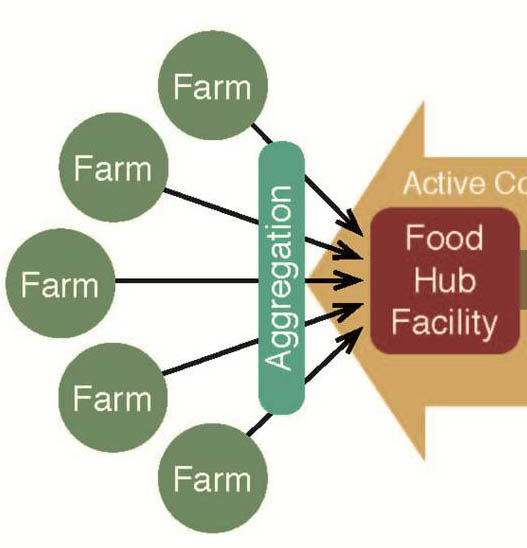Some Georgia farmers are looking to food hubs as a way to better market their produce and make the process of getting their produce to market more efficiently.
A summertime survey of 216 farmers showed that 91 percent of those who responded said that they were interested in working with other farmers to meet the local demand for their produce or products. That cooperation could constitute the basis for formation of new food hubs in Georgia.
“One of the key reasons the food hubs we have seen are successful, like Eastern Carolina Organics (ECO) in North Carolina, is because they match farmer supply and customer demand,” said Kate Munden-Dixon, Sustainable Agriculture Research and Education program assistant with UGA College of Agricultural and Environmental Sciences.
“We were happily surprised to find that a high percentage of farmers were willing to work together and perhaps alter what they planted in order to meet customer demand,” she said.
Farmers working at a small-scale can sell directly to consumers, but a growing number find they have too much produce for a farmers market or a community supported agriculture system but not enough to meet the needs of restaurants, schools or grocery stores. That’s the purpose of a food hub—to pull these small and medium size farms together, so they can pool their products to fill large orders.
The survey, which was released in January, is part of the Georgia Sustainable Agriculture Consortium plan, led by UGA Cooperative Extension, to support the development of new food hubs.
In another survey this summer, Julia Gaskin, CAES sustainable agriculture coordinator, and other researchers identified eight working food hubs in Georgia. For the purpose of that survey, they defined food hubs as physical locations that aggregate products from five or more farmers and had a wholesale component.
Seventy-two percent of the farmers who said they were interested in forming food hubs primarily produced vegetables and fruit, and more than half — 62 percent — worked farms that were smaller than five acres.
The bulk of the responding farmers were interested in using a food hub to market their produce to local restaurants, retailers and schools. Sixty-two percent wanted a food hub to provide refrigerated storage and labeling equipment.
For meat and egg producers, the prospect of having a co-owned beef, poultry or swine processing facility and possibly a central location to collect, process and store eggs were a high priority.
Most of the respondents who grew vegetables were clustered around metro-Atlanta and in Northeast Georgia as well as along the Interstate 75 corridor.
Meat and egg producers were scattered throughout the state, which would complicate but not preclude the construction of a central processing and distribution facility, according to the report.
Farmers also worried that moving into larger retail or institutional markets would reduce the revenue they saw from each sale. While they would be selling more they might lose the profit they make now by selling direct to consumers.
More information about the study is available at www.SustainAgGA.org .
Munden-Dixon will present the findings at the 2013 Farm to School Summit in Atlanta on Thursday, Feb. 22. Gaskin will present the full results of the survey at the Georgia Organics Conference in Atlanta on Friday, Feb. 23.







